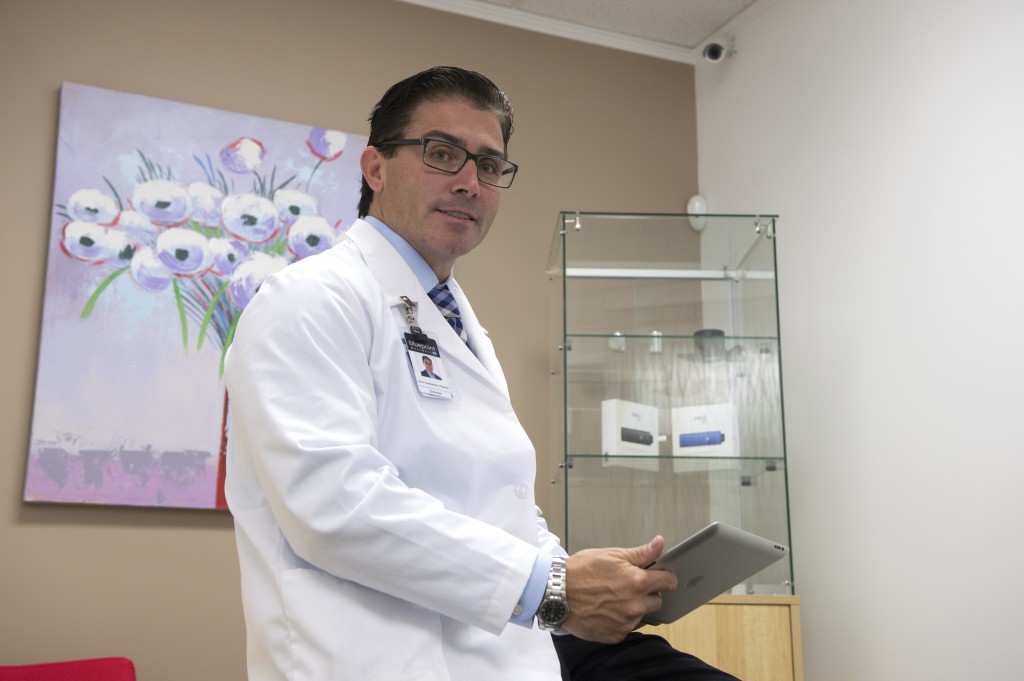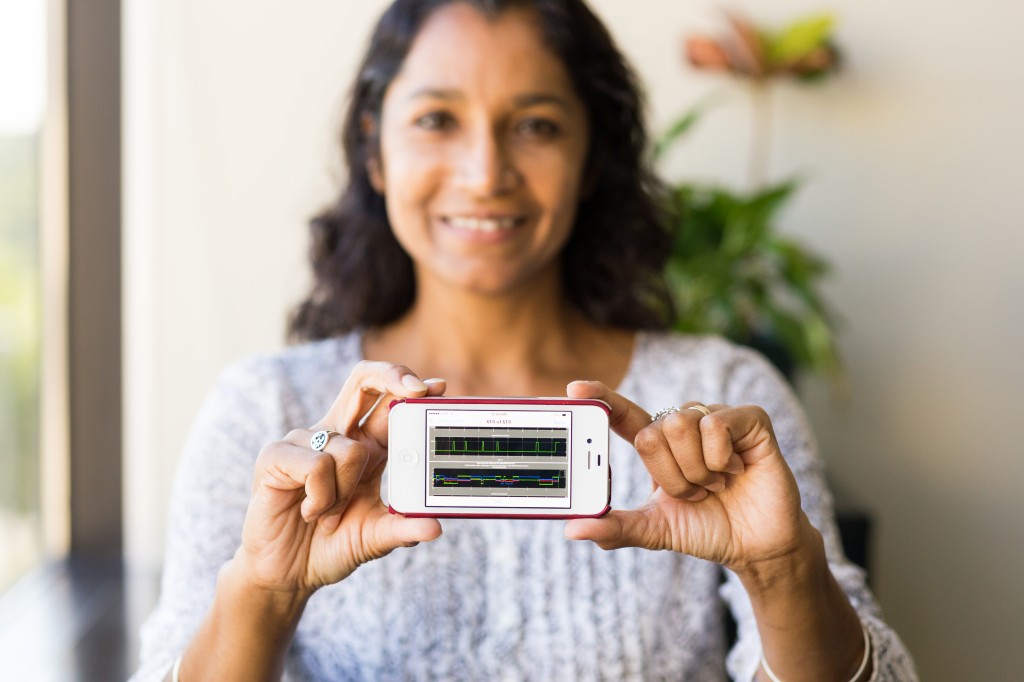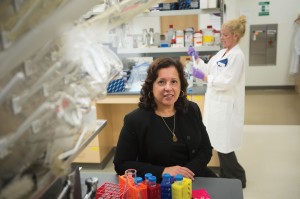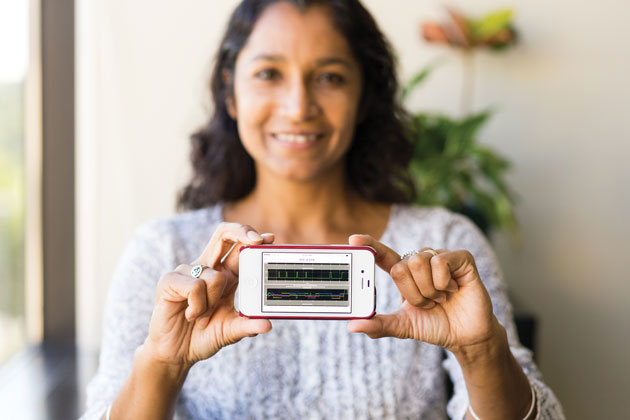This article was first published in the Fall 2014 print edition of UConn Magazine. To read more stories like this, visit s.uconn.edu/fall14 or download UConn Magazine’s free app for iPads.
Medical marijuana is considered so cutting-edge it’s not yet legal in 27 states. The state of Connecticut became one the first to legalize medicinal cannabis sales, passing legislation two years ago that permits its use for specific health conditions while requiring a pharmacist to dispense the drug. And that’s exactly why UConn alum Nick Tamborrino ’02 Pharm.D., ’11 MBA wants to be at the forefront of the industry in Connecticut.
“I think that Connecticut is on the right track,” says Tamborrino, owner of one of the state’s first six licensed medical marijuana dispensaries. “If we’re going to treat it like a medicine, it should be dispensed like a medicine — and that’s what drew me in.”
Tamborrino, who opened Bluepoint Wellness of Connecticut in Branford this past September, is one of numerous UConn alumni and faculty who today are pioneering innovative paths to healing across diverse areas of medicine in an effort to better the health and wellness of residents throughout the state and beyond.
The University and UConn Health have long been committed to promoting medical advancement through breakthrough research and outstanding health care services for Connecticut’s citizens. More recent initiatives, such as Bioscience Connecticut — a bold $864 million investment poised to raise the University’s stature as a leader in genetics research and personalized medicine — continue to push the limits of modern medicine and support the University’s ongoing dedication to improving health care.

‘At the Ground Level’
Tamborrino, 38, has worked as a clinical consultant for a prescription management benefit company, as a training coordinator for the Yale New Haven Health System, and as a retail pharmacist. He says he’s always wanted to start his own business, and when state legislators began studying medical marijuana legalization, Tamborrino started doing his own research.
As he learned more, Tamborrino says the benefits of medical marijuana became evident. However, the drug is still illegal federally and not approved by the Food and Drug Administration. Through the Connecticut Pharmacists’ Association (CPA), Bluepoint Wellness will take part in an international research program run by the Canadian Consortium for the Investigation of Cannabinoids. The study will, in part, document patients’ conditions and symptoms and how well each strain of medical marijuana treats
each illness.
“We’re going to pinpoint the exact strain with certain conditions,” says Tamborrino, who is chairman of CPA’s Academy of Medical Marijuana Dispensaries. “We’re at the ground level.”
Not only does Tamborrino hope his work will help define which types of marijuana are better for which conditions, but he also believes the way his business is run can help create a new, safer model for dispensing the drug.
“I’m trying to create a new model,” says Tamborrino, who explains that the dispensary resembles a medical clinic. “It’s a hybrid, pretty much a mix of a retail pharmacy and a medical office.”
Patients are admitted into the secure facility and show identification and registration cards at a teller window. Once those are verified, patients are let into a waiting room where they can browse electronic menus and iPads filled with descriptions of the products.
Patients then meet with a pharmacist to discuss their medical history and drug interactions and to determine what strain to buy.
“We’re not just looking to dispense marijuana; we’re trying to create a program where we can really monitor and learn from this,” says Tamborrino, who is licensed to treat patients with conditions including cancer, glaucoma, and HIV. “Our goal is to find a means to track outcomes of patients taking cannabis, as well as to create a metric and convert the outcomes into real-world data to help define the safety and efficacy of the different products.
“This is the first state to require pharmacists to dispense this [drug],” he says. “If we could prove that this makes sense, this could be the standard across the nation.”
Better Sleep … Through Smartphones
Fellow UConn grad Madhvi (Bhatt) Upender ’90 (CLAS, SAH), meanwhile, is working to improve health care in a different way — by focusing on revolutionary technological advancements.

A background in neuroscience and cancer genetics, coupled with a passion for entrepreneurship, guide Upender’s mission to empower individuals to take control of their health. As CEO and co-founder of Maryland-based Awarables Inc., Upender is developing hardware and software that will allow people to track the quality of their sleep. Among her teammates is another UConn alum, Raghu Upender ’90 (CLAS), ’95 MD, her brother-in-law and a neurologist and sleep clinician at Vanderbilt Medical Center in Nashville.
The first Awarables products, being developed now, will target children with sleep disorders and those with neurobehavioral disorders, such as attention deficit hyperactivity disorders, Upender says. One in 10 school-aged children and more than half of children with neurobehavioral conditions suffer from a sleep problem, according to Upender.
“The key point for kids is that when they don’t sleep well,” she says, “a lot of data shows it really impacts their [academic] performance.” Sleep disorders can also have a negative effect on their social and psychological well-being, she says.
Using a National Science Foundation grant, the company is creating devices that the children will wear to bed, with sensors for heart rate, sound, and other sleep quality indicators. The metrics will be accessible by parents via a smartphone app, which collects
the data and tracks it over time.
The company also plans to build a portal for physicians to access the data, allowing them to make changes to medications or treatments and to see how they affect the patients’ sleep, according to Upender.
I want to be part of this wave of innovation that’s happening in health care. —Madhvi (Bhatt) Upender ’90 (CLAS, SAH)
“We’ve talked to a lot of parents who have children with these conditions, [and to] doctors,” Upender says. “It could be a very simple thing that they need to change that could result in a significant lifestyle improvement.”
The Department of Defense, which has an interest in how sleep affects military personnel, has also awarded a grant to Awarables, says Upender, who became interested in the translational aspect of science — “bringing scientific discoveries to practical application” — while doing postdoctoral work in cancer genetics at the National Institutes of Health.
Upender, who later worked at the National Cancer Institute and at a startup that developed a new test to identify early-stage cervical cancer, says the entrepreneurial bug eventually bit her. In 2013, she created the business plan for Awarables, then called Naveenum, as part of a University of Maryland entrepreneurship program. After being named a semifinalist in the 10th annual StartRight! Women’s Business Plan Competition with her plan for Awarables, she started working on the business full time.
“I’m very excited about all the technology advancements that are going on,” she says. “I want to be part of this wave of innovation that’s happening in health care.”
Bioscience Breakthroughs on Campus
On the University’s own campuses, this same wave of innovation is engaging faculty, some of whom have specifically been drawn to UConn in recent years by the expansion of UConn Health’s research facilities as well as the growing cross-disciplinary opportunities to study biomedical problems that could transform medicine. For Annabelle Rodriguez-Oquendo, the state’s dedication to the Bioscience Connecticut project, demonstrated by funding of billion-dollar projects like The Jackson Laboratory for Genomic Medicine, solidified her own interest in UConn.
A professor of cell biology who holds the Linda and David Roth Chair in Cardiovascular Research at UConn Health, Rodriguez-Oquendo arrived at UConn two years ago from Johns Hopkins University. There, she had been studying an enigmatic condition that she first found in a patient who had high levels of high-density lipoprotein (HDL) cholesterol — the “good” kind — but who also had many risk factors for heart disease.
Guidelines at the time said patients with HDL levels over 60 were protected from heart disease, according to Rodriguez-Oquendo. Yet despite the patient’s high levels of “good” cholesterol, she had found evidence of blocked arteries.

“It was really clear that there was a paradox,” Rodriguez-Oquendo says. “There had been a lot of research on the low-density lipoprotein [LDL] cholesterol and its impact on risk for heart disease,” but the protein affecting the levels of HDL cholesterol in the bloodstream had been a mystery. At Hopkins, Rodriguez-Oquendo and her team became the first to identify the gene variation that puts patients at a higher risk for heart disease as well as infertility. They patented a blood test that detects the protein marker indicating this mutation.
Since arriving at UConn Health in 2012, her lab has patented a gene that — with the genetic variation associated with high HDL cholesterol — they believe causes heart problems and infertility in 20 percent of the population.
“The work we’re doing is just thrilling. We’re into new territory,” she says. “We’ve gone from that place of when I saw that patient, saying, ‘Huh, there is really something odd about this HDL and her blocked artery,’ to looking at the genetic code, and we’ve been able to distill it down.”
Rodriguez-Oquendo hopes to bring her research full circle at UConn, developing treatments to reduce the risk of heart disease while increasing fertility in those with the defect.
“We’re right now in that ‘wow’ moment,” she says. “It’s nice to know it’s materializing. It’s exciting.”



